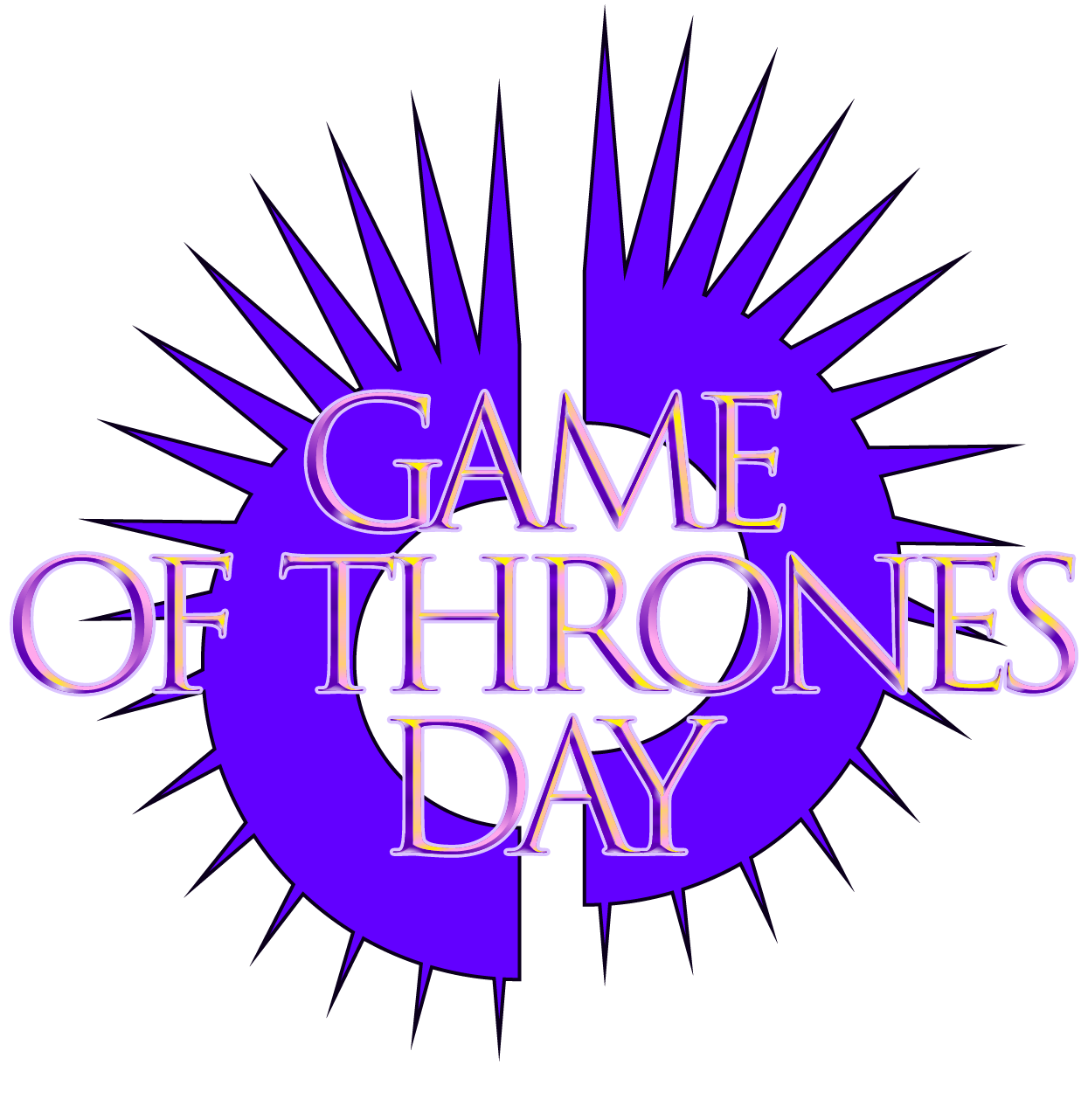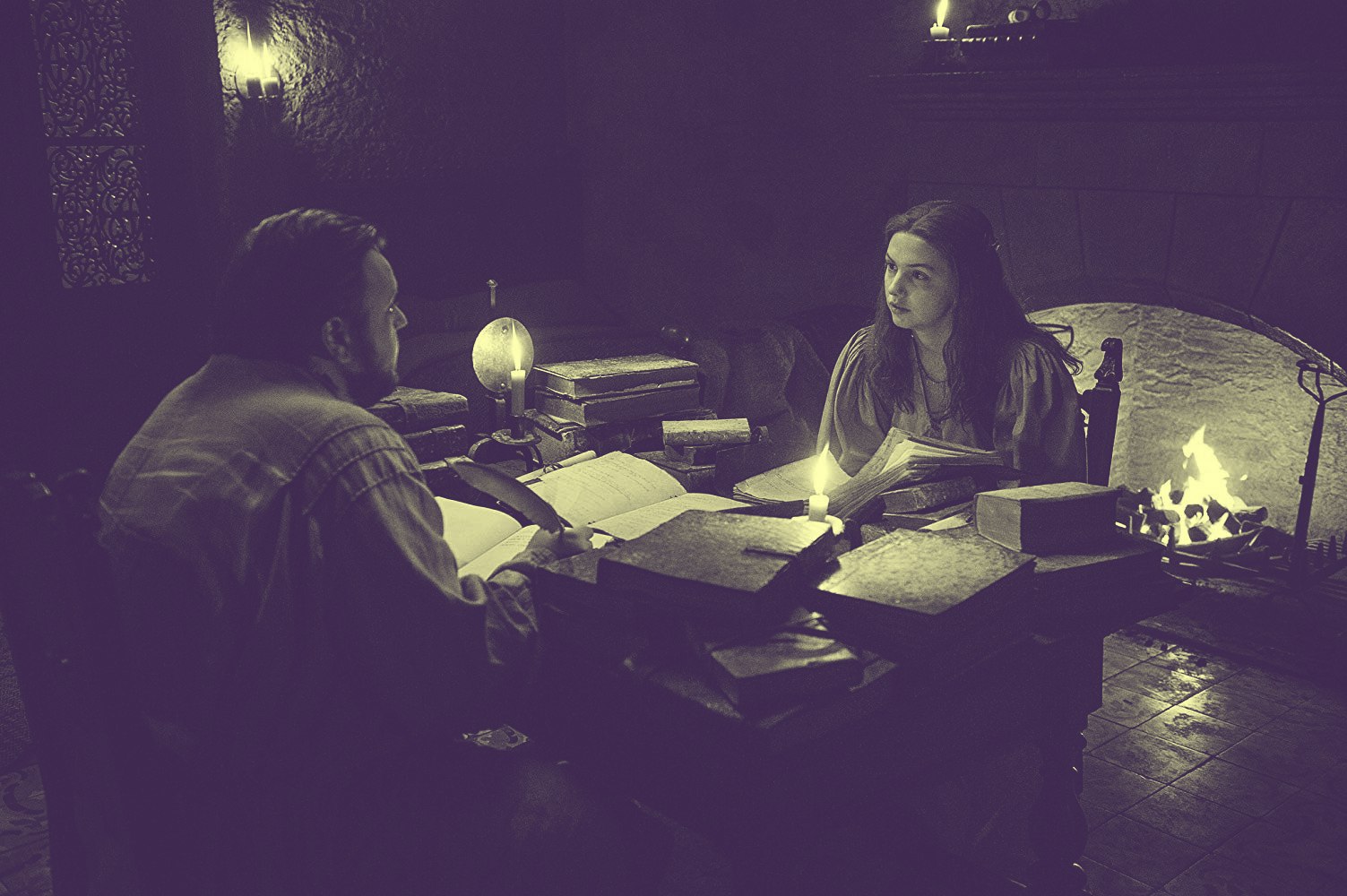I. A SONG OF EYEBALLS AND ENGAGEMENT TIME
Every Wednesday around 2 p.m., over 10 weeks spanning April to June 2016, HBO would release a batch of photos from the upcoming episode of Game of Thrones. My task, along with that of two colleagues, was to create content around these photos for our large media company employer’s website as quickly and efficiently as possible. This content would then be disseminated by a third colleague, the social media editor, who would hustle it out onto the company’s Twitter and Facebook accounts. The process from start to finish took around 20 minutes.
The photos we shared — uniformly dull shots of attractive people looking at one another — were not particularly newsworthy or exclusive. Nor was their release unusual: all sorts of show photos are doled out by all sorts of production companies. It’s just part of the game, if you will, to receive press releases in your inbox, and to politely ignore the majority of them. (Full disclosure: The media company also had a show on HBO at the time, but we were under no explicit obligation to cover.) Our innovation, if I may use the term generously, was to approach these posts as parody. Rather than dutifully unpack each tiny detail from the uneventful photos, as many sites did, our writer related what was happening in a vague, upbeat, ludicrously uninformed fashion. “There are people, funny clothes, and horses,” he wrote in one post. “Beyond that, I have no information for you, sorry. Hopefully you like these photos.”
I think these posts, trolly but essentially harmless, were also a way to convey a funny — or very sad — truth: how useless these photos were and how absurd, even somewhat grotesque it was that we, content producers, were nonetheless compelled by market forces to produce such a post that they, content consumers, would nonetheless be compelled to click through. Such a post, we hoped, would at least be entertaining (or brief) enough that people might forgive the bait and switch. Either way, the engagement time would be ours.
The posts did well — they were our most trafficked posts for hours. Which was a thrill, and a relief — page views here meant resources elsewhere — but not a surprise. If there’s anything I’ve learned from covering culture on the internet in the 2010s, it’s that 1) Thrones-related content does very well and 2) you, too, may be asked to create it, because it does very well. As the series prepares to wrap after eight seasons, it will leave a hole in the content economy that could only be filled by another Game of Thrones.
II. A FEAST OF CLICKS
“I’ve been a culture editor and writer for the Times since 2008, but nothing I’ve done has been as popular as these weekly breakdowns,” Jeremy Egner, the New York Times’ designated Game of Thrones recap writer, wrote in 2017, following season seven. “I don’t claim much credit for that — I’m piggybacking on a juggernaut.��
Game of Thrones’ popularity is well-documented. At this point, the epic fantasy series based on George R. R. Martin’s A Song of Ice and Fire and adapted by D. B. Weiss and David Benioff turns up more Google hits than “Shakespeare” and “The Bible”; its most recent season, its seventh, was reportedly pirated over a billion times. Less discussed, perhaps, is how relentlessly the show gets covered. A casual search of the New York Times site, as of Tuesday, turns up 2,459 Game of Thrones-tagged entries. Entertainment Weekly has written about the show no fewer than 1,838 times. New York magazine’s Vulture blog has but a mere 797 pieces on the show. While it’s true that shows like This Is Us and The Big Bang Theory might be in the same league ratings-wise, they receive only a fraction of the write-ups. As Vulture’s Nate Jones wrote in a recent piece recapping the entire series, it's the most-covered show on TV.
“There’s no other show where you have fans really excited about finding out the run time details of every episode,” said Entertainment Weekly editor-at-large James Hibberd, who broke the news of HBO’s pilot order back in 2008. Such dribbles of new content, often pushed out by HBO, are popular because they fuel fan speculation: who might get offed next, who’s secretly from what house, whether Dany, Jon, and Tyrion are all actually related, who’s going to get it on while saving the Realm atop dragons, and so forth. This, fueled by social media, generates clicks, which means higher ad revenue, which in turn creates the incentive for more stories. And so the wheel of content turns.
“They all go off. It’s insane to see the appetite for it. People will just eat it up.”
“You don’t get one episode of The Bachelor giving you five, ten stories,” explained David Mack, deputy director of breaking news at BuzzFeed News and one of the company’s resident Thrones gurus. “The sheer volume of Game of Thrones coverage is what stands out,” he said — I counted 1,057 such BuzzFeed stories — “and the fact that all of it seems to land with the audience as well.”
Mack described their approach of “swarming” the show, where writers would post anywhere between five and ten posts Sunday night and into Monday — best tweets, funniest moments, breakout moments, explainers, and so on. “They all go off,” he said; GoT-related posts would top the site’s most-read articles for at least 48 hours. “It’s insane to see the appetite for it. People will just eat it up.”
When HBO released the season eight trailer on March 5, BuzzFeed “tweeted that like a breaking news event,” according to Mack. “[HBO’s] rep had informed us something was coming. We made a guess that it was the trailer, [and] we prepared a story to go where we could just drop in the link. Within 30 seconds of HBO releasing that thing, we had it up on our website and were pushing it out for our readers.”
He noted, “But even if we didn’t have the heads up, we probably would have just tossed the YouTube link and pressed ‘publish,’ and then gone in and backfilled.” (As in entering the rest of the story on a live page, while already reaping the benefits of “first!” traffic.)
The trailer has 53.6 million views on YouTube as of this writing.
By tapping into reliable streams of traffic, editors at numbers-driven sites can feel freer to pursue less obviously popular or prestige stories, which are vital in maintaining the balance of producing work that’s valuable for readers and keeping the site’s lights on (and their own jobs). Also, it can simply feel good, and justifying, to do stories readers are responding to.
“Everyone in entertainment media is going to miss this show,” Mack said.
III. ONLY HITS AND DRAGONS
It hasn’t always been this way — the Times famously panned the show’s debut in 2011 as “boy fiction,” “a lot of confusion,” and “sketchily fleshed-out.” But the show found its audience and “it’s been a steady ramp-up to the level it is now,” Hibberd wrote in an email. The veteran TV reporter and self-described “Westeros War Correspondent” noted “upward surges of interest along the way at various points,” including the Red Wedding (2013), the Battle of the Bastards (2016), and breaking the Emmys primetime record (also 2016).
The shocking Red Wedding, in which several of the show’s favorite characters were brutally killed off, marked a particular turning point for interest, according to Joanna Robinson, a senior writer at Vanity Fair and OG Thrones podcaster who has also become a well-known expert on the show. The way fans used social media and YouTube videos to share their astonishment and horror at the gnarly spectacle “matter[ed] more than any ad campaign,” she said over the phone. “When all those [Red Wedding] reaction videos went viral, there was this huge boom.” The episode was the most social moment in HBO history, with 700,000 online mentions, yielding a neologism for sadistic bloodbath which quickly entered our cultural vocabulary.
Not that there aren’t a few caveats to the veritable content bonanza. “I wouldn’t say Game of Thrones was ‘guaranteed’ traffic,” Hibberd cautioned. “It may be the most traffic-driving show out there but because of that every outlet is writing about it constantly, so you have to stand out with content other sites don’t have or grab breaking news with speed that others aren’t matching.”
VICE.com social media editor Peter Slattery seconded this notion. “Speed is so the name of the game there. [The media landscape] is just so saturated that it’s really not worth doing a write-up, even from a complete numbers perspective, no matter how good your writing is, if it’s the morning after. But the flip of that, there’s sort of no tidbit too small for a property like Game of Thrones to report on.”
When asked about the popularity of Thrones content, Slattery offered a dark view. “Violent sex written by a man targeted to men is gonna click,” he said. “You can put a different man behind it, but a large section of the internet is hardwired,” he said. “That’s not to insult George R. R. Martin, I mean I’ve read the books, I watch the show. But yeah, that’s kind of the nature of the internet.”
But this point has been countered since the inception of the show. “In my personal experience, I have seen more women showing excitement about Game of Thrones than men,” Amy Ratcliffe wrote on Tor.com in response to the 2011 Times review’s “boy fiction” accusation. “I’ve seen this on blogs, on social media, at Game of Thrones events, and at conventions.”
David Mack also disagreed. “From my experience, looking at the way [BuzzFeed] readers experience it, I think there’s a huge amount of women that watch. It wouldn’t have succeeded the way that it has. To me, I see it as a soap opera.”
It’s true that certain events, such as Cersei’s “rape-as-a-prop” and the controversial, poorly handled rape of Sansa, outraged a significant portion of the show’s viewership. But the story has also progressed so that Sansa’s rapist was torn apart by dogs and Cersei sits (for now) atop the Iron Throne, after incinerating a city’s worth of enemies. Ultimately, the violence seems a part of George R. R. Martin’s master plan, centered on a brutal moral compass that could have been sourced from Hammurabi’s code. Like many great shows, Game of Thrones is constantly introducing elements that make you say “I want to see what happens next,” which it then delivers. The discomfort of watching bad shit happen over and over again is somewhat balanced out by the knowledge that eventually, all the characters — and not just the Lannisters — will pay their debts.
IV. WHAT IS BINGED ON MAY BE BINGED ON AGAIN
In a piece last year for The Ringer titled “The Very Last Piece of TV Monoculture,” TV critic Alison Herman described the show’s “common language,” as a cultural touchstone you can “reliably actually discuss with people.” She wrote: “It feels good to have something that connects us; it’s why the popularity of a Harry Potter or a Star Wars gradually becomes as important to its appeal as the work itself.” The Ringer, it bears mentioning, is no slouch when it comes to GoT offerings, churning out the excellent Thrones-centric video podcast Binge Mode, and the Thrones-discussing Twitter series Talk the Thrones, previously known as the HBO Thrones after-show, After the Thrones — alongside a homepage so stocked with Thrones coverage the topic merits its own header, right between “NBA” and “March Madness.” Since the season eight trailer debuted in January, they’ve published more than 70 pieces of content on the show, between articles, podcasts, and videos.
Meanwhile, Robinson attributes the popularity of show content to the rise of “explainer culture, helping you understand what you just watched.”
“Anyone with even a base level of understanding of Game of Thrones can watch an episode and enjoy it, especially in these later seasons, because there’s spectacle and social-media meme conversations, and stuff like that,” she said. “But what has been true of Game of Thrones from the start is that, if you don’t have an encyclopedic understanding of the books, there are moments when you’re gonna be confused. I remember the complaint from season one was like, ‘There’s all these white guys with beards that have these weird names and I don’t know this character from that character.’ You don’t hear that as much anymore. But there is a value in being able to explain this incredibly dense source material — because George R. R. Martin’s books are incredibly dense — for someone who wants to watch the show, doesn’t want to do all the homework, but wants to have a slightly deeper understanding for the show.”
“The reason people like the show,” Herman told me, “is that it’s a very good show that has great characters, which is the reason that you like every great TV show. These people are sophisticated and nuanced, and you can really give a lot of thought to them.” I concur: With so many of those great and complicated characters, it’s easier to find the ones who resonate with you on an individual level. There’s the voice of witty reason Tyrion and his siblings/twincesters Cersei and Jaime; the righteous badass Daenerys, Queen of Dragons; morose and duty-bound heroes like Jon Snow, Grey Worm, and traditional gender role-eschewing Brienne of Tarth; forged-in-fire Stark sisters Sansa and Arya; the swashbuckling, swinging Red Viper and his vengeful paramour Ellaria Sand; and literally thousands more Thrones characters to choose from, witches and sellswords and giants, each with their own detailed backstories and family lines if none of the above stirs you.
As Arya suggests to her crush, the orphan Gendry: “I can be your family.” That idea — of choosing the family you want, as opposed to the one you’re born into — is central to the series. Likewise, community is a draw for the fans and content-makers, too. “It really does genuinely sound kiss-ass that the experience of talking to our listeners means more than watching the show, but it really does,” Robinson told listeners on a recent episode of A Cast of Kings, one of two popular Thrones-based podcasts she co-hosts, alongside her Vanity Fair job covering TV — an impressive and possibly unrivaled amount of Thrones material that she’s putting out into the world.
When I said as much, she demurred. “It’s either impressive or depressing,” she laughed. “I’m not sure which.” The preternaturally prolific writer and podcaster estimated that she had produced over 500 pieces on the show over the years, including recaps, cast interviews, explainers, and news write-ups, though she couldn’t be sure of the exact number. (Spoiler: it’s actually closer to 800. I counted.)
“It’s an important show for what it’s meant for the culture but it’s still also just a TV show,” she said. “Occasionally you’re like, ‘Oh my god, the hours of my life I’ve dedicated to this. Am I going to look back at this decade saying and be like, ‘That was a decade well spent’? Or am I going to be like, ‘What were you doing?’”
That time for looking back will come soon enough, when on May 19, the sixth and final episode of the eighth and final season will air, and recappers across the internet will scramble to file their swan-song recaps. An obligatory wave of wrap-up content will wash over us: explainers, best tweets and reaction videos, lingering unanswered questions, what’s next? And then there will be the uniquely Thrones-sized vacuum that critics like Herman don’t believe will ever be filled again, because of the way TV — as it is produced and consumed — has so profoundly changed. HBO has several spin-off shows in the works, with one of them scheduled to air in 2020, but there’s no guarantee they’ll catch lightning a second time — Better Call Saul and Fear the Walking Dead are markedly less popular than Breaking Bad and The Walking Dead, respectively.
Robinson, for her part, expressed “palpable relief from this crazy pressure-cooker cycle every ten weeks or seven weeks or six weeks that I have to cover Game of Thrones and make sure that I’m on top of it at all.”
She continued: “To a much lesser degree, obviously, but just like any Game of Thrones actor you talk to, I’m fully aware that this might be the biggest thing I ever do. But that’s fine with me. I have no fear of Game of Thrones ending, like, ‘What will become of me when it’s gone?’ I just know it will be different. But that’s exciting, as I’m sitting here. You know, talk to me at the end of Game of Thrones, and then talk to me, like, a year after of Game of Thrones after I’ve faded into complete obscurity.”
“‘Where Are Your Favorite Game of Thrones podcasters Now?’” I offered.
“Exactly.”
And just like that — another idea for more Game of Thrones content.





